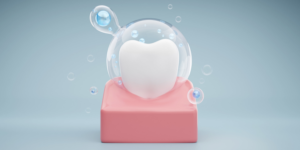Introduction:
Brushing your teeth is a fundamental aspect of maintaining good oral hygiene, but are you doing it correctly? In this article, we’ll explore the dos and don’ts of brushing for better oral health. By following these simple guidelines, you can ensure that your brushing routine is effective and contributes to a healthier smile.
The Dos of Brushing:
Do Use the Right Technique
Using the correct brushing technique is crucial for removing plaque and food particles effectively. Hold your toothbrush at a 45-degree angle to the gums and use short, gentle strokes to clean the front, back, and chewing surfaces of your teeth. Be sure to brush for at least two minutes each time, covering all areas of your mouth thoroughly.
Do Brush Twice a Day

Brushing your teeth at least twice a day, in the morning and before bedtime, is essential for maintaining good oral hygiene. Brushing in the morning helps remove plaque and bacteria that have accumulated overnight while brushing before bedtime removes food particles and bacteria that can cause plaque buildup and tooth decay.
Do Replace Your Toothbrush Regularly
Toothbrushes wear out over time and become less effective at removing plaque and bacteria. Replace your toothbrush every three to four months, or sooner if the bristles become frayed or worn. Using an old or worn toothbrush can be less effective and may even harbor bacteria, so be sure to replace it regularly to maintain optimal oral hygiene.
Do Use Fluoride Toothpaste
Fluoride is a mineral that helps strengthen tooth enamel and prevent tooth decay. Choose a toothpaste that contains fluoride and brush with it twice a day to protect your teeth against cavities. Be sure to use a pea-sized amount of toothpaste to minimize the risk of ingesting too much fluoride.
Do Clean Your Tongue
Cleaning your tongue is an essential part of maintaining good oral hygiene. Use a tongue scraper or the back of your toothbrush to gently remove bacteria and debris from the surface of your tongue. This helps prevent bad breath and reduces the risk of oral health issues such as tooth decay and gum disease.
The Don’ts of Brushing:
Don’t Brush Too Hard
Brushing too hard or using a toothbrush with hard bristles can damage your tooth enamel and irritate your gums. Use a soft-bristled toothbrush and gentle, circular motions to clean your teeth, and avoid applying excessive pressure. Brushing too hard can lead to gum recession, tooth sensitivity, and other oral health problems.
Don’t Forget to Floss
While brushing is essential for removing plaque and bacteria from the surfaces of your teeth, it’s not enough to clean between your teeth and along the gumline. Flossing helps remove plaque and food particles from these hard-to-reach areas, reducing the risk of cavities and gum disease. Be sure to floss at least once a day, preferably before bedtime, to maintain optimal oral hygiene.
Don’t Rinse with Water Immediately After Brushing
After brushing your teeth, it’s tempting to rinse your mouth with water to remove toothpaste residue. However, rinsing with water immediately after brushing can wash away the protective fluoride left behind by the toothpaste. Instead, spit out the excess toothpaste without rinsing to allow the fluoride to continue protecting your teeth between brushings.
Don’t Share Your Toothbrush
Sharing toothbrushes can spread bacteria and increase the risk of oral infections and diseases. Each person should have their own toothbrush and avoid using someone else’s brush, even temporarily. Additionally, be sure to store your toothbrush in an upright position and allow it to air dry between uses to prevent the growth of bacteria.
Don’t Brush Right After Eating
While it’s essential to brush your teeth regularly, it’s best to wait at least 30 minutes after eating before brushing. This allows time for saliva to neutralize acids in the mouth and remineralize tooth enamel, reducing the risk of enamel erosion. Brushing immediately after eating, especially if you’ve consumed acidic foods or beverages, can actually damage your tooth enamel.




